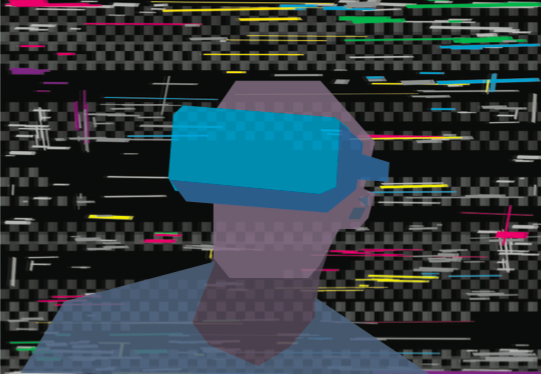
Technology has already made immense strides in virtual reality, but hyper-realistic simulations will blur the lines of reality, exacerbating problems that are already troubling to solve in real life.
Facebook rebranded to Meta Oct. 2021 as a part of a new initiative to bring the idea of the metaverse into reality. CEO Mark Zuckerberg said that this will provide an opportunity for connection, to create communities and to build businesses.
The metaverse, as imagined in Meta’s promotional video, is a fully immersive, hyper-realistic virtual world that will touch on every product that Meta builds. This includes going to live concerts, hanging out with friends and even going to the office. Instead of looking at an image, the user would be in the experience.
The metaverse is technically already accessible with virtual reality, which allows a person to put on a virtual reality headset and feel immersed in a realistic, computer-generated world in which they can control their avatar. Zuckerberg and other Silicon Valley inventors are dreaming of a much larger metaverse.
Everything you could do in the real world, the metaverse could replace.
Although the metaverse is not built yet and is currently only in the imagination of ambitious inventors, we must be cautious when building this technology.
The invention of this technology is inevitable and there are already plans to have a release of a hyper-realistic office space for companies by later this year. The metaverse will only grow from there.
Technological growth and reliance on said technology is inevitable.
The 1920s brought in mass communication radios, the 1950s brought in television, and the 1990s brought in the internet. Today, we cannot live without any of these items. The same will be for the metaverse.
Invention and technological progress is not bad, but the metaverse will pose several problems from assault, fraud, power and the possibility of derealization.
A woman has already claimed that she was raped in a VR space, after experiencing her avatar being physically and verbally assaulted by multiple male avatars. A child was let into a virtual strip club where they were approached by adult male avatars, saw simulated sexual acts and other sex paraphernalia like sex toys and condoms. If these experiences did not physically happen in reality, there currently is no legal jurisdiction to address virtual assaults.
Cryptocurrency, which is a form of currency that only exists digitally, is growing in popularity on the internet and will be involved in the metaverse. One form of cryptocurrency is non-fungible tokens, more commonly known as NFTs. NFTs is digital artwork that is growing in popularity in investment communities. It is not about the art but about the value of unique pieces.
If digital currency is stored on the web, there is always some way to hack it. An NFT hanging in a virtual gallery is perhaps less protected than one hanging in physical ones like the Milwaukee Art Museum, despite it not being tangible. If a majority of a person’s life savings are stored online in cryptocurrency, it can be hacked and stolen within seconds.
However, cryptocurrency is not the only form of money that is worrying. It is estimated that the metaverse will generate $10 to 3o million in revenue, meaning the company that owns the metaverse will have great financial power.
With a company that owns a complete replication of our world that has power over our money, our information and the overarching design of this new world, their power would be greater than any government by design.
Despite the metaverse’s problems, its growth could help our society build connections and allow for global relationships. It could make it easier to see distant loved ones, allow for break in censorship in countries that have banned media and change global affairs.
Yet, virtual reality is isolating. Putting on a headset, blinded by computer-generated images, makes the user unaware of their surroundings, even if another person is physically present.
The biggest concern with the metaverse is derealization.
Creating a server that is so hyper-realistic that it will be hard to differentiate between AI and humans, virtual worlds and physical worlds is dangerous and is a part of the Simulation Hypothesis.
When one civilization creates hyper-realistic virtual worlds, there are not just one but many simulated worlds. If the metaverse is built out, this idea is likely. If we can achieve this technological feat in the near future, then in a universe that is billions of years old, it is likely that this has already been accomplished.
If there is only one physical world and multiple simulated worlds, which one are we, statistically speaking, more likely to be in?
This story was written by Laura Niezgoda. She can be reached at [email protected]






